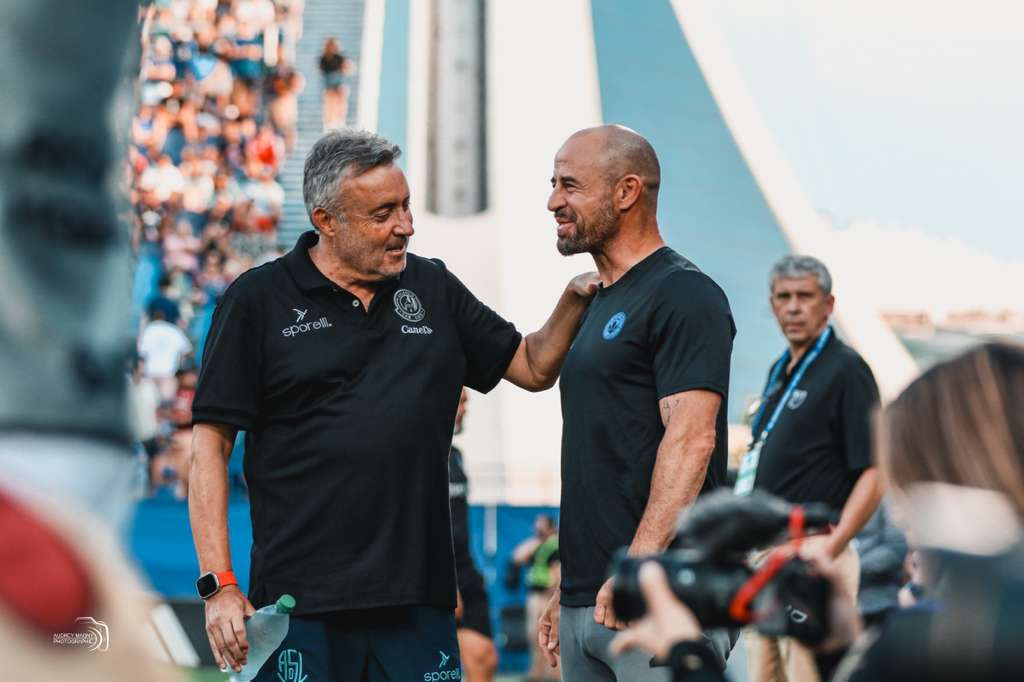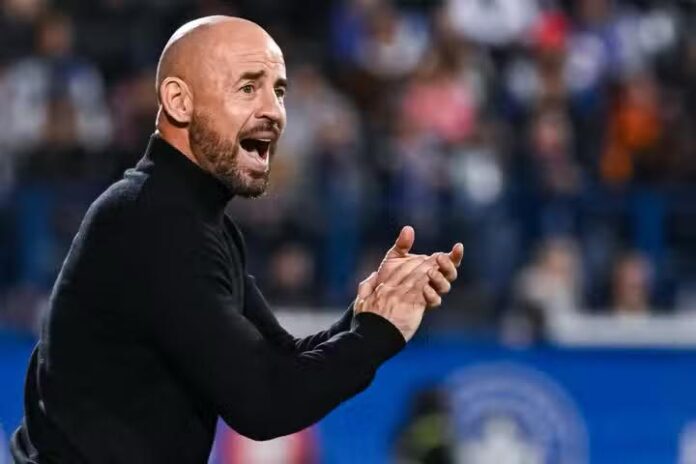Lyon Roots and Coaching Foundations
Laurent Courtois, head coach of CF Montréal, was born in Lyon and shaped by one of France’s most respected football academies, Olympique Lyonnais. Street football and OL’s emphasis on technical repetition, duels, and intensity forged his philosophy early. “Lyon is a fantastic pool of talent,” Courtois says. “We learned skill, competition, and mental toughness.”
After his playing career in Europe and the U.S., he moved into coaching at Lyon’s academy. There, he learned the importance of communication, structure, and supporting players beyond the pitch. “It’s not about me performing anymore; it’s about helping every player be seen at their best,” he explains.
“It’s not about me performing anymore; it’s about helping every player be seen at their best.”
Coaching Growth and Move to North America
Driven by curiosity and ambition, Courtois left France to explore new challenges in Major League Soccer. He worked across the U.S., from California to Ohio, gaining experience managing diverse rosters. “We had about 13 nationalities,” he recalls. “Players want to play, and fans want to make the playoffs, that’s the same everywhere.”
Courtois was attracted by MLS’s commitment to player development. “In North America, athletes are recognized and valued,” he notes. “In Europe, they can sometimes be stigmatized by opinion.”
CF Montréal and Coaching Philosophy
When Courtois joined CF Montréal, he quickly adapted to the club’s unique environment, and the challenges of the Canadian winter. “We had to take the bus to train on turf and waited a long time to see grass,” he laughs. “But I liked the club’s identity and the city’s passion.”
Promoted to first-team head coach, Courtois applied his developmental principles at the professional level. Despite a young roster, injuries, and international call-ups, he guided Montréal to eighth in the Eastern Conference, emphasizing adaptability and intelligent pressing. “I couldn’t press as vertically as I wanted, so we set up more pressing traps,” he says.
Tactical Identity and Methodology
Courtois’s teams are known for an aggressive, possession-based style focused on tempo control and collective intensity. His training sessions mirror real match conditions, using repetition and situational drills to prepare players for decision-making under pressure.
He believes in synchronized development across all club levels, a “one-identity” model ensuring tactical alignment from academy to senior team. “It’s about structure but also about allowing players to express themselves,” he says.
“It’s about structure but also about allowing players to express themselves.”
Vision and Future Goals
After years in Europe and North America, Courtois sees himself as part of MLS’s evolution. “Infrastructures here are exceptional,” he notes. “Even reserve teams have incredible tools.” He remains open to future challenges in Europe but stays focused on MLS. “I’m an American citizen now, and with the World Cup coming, I want to be here.”
A Modern Coach for a Modern MLS
Laurent Courtois’s journey from the youth academies of Lyon to Major League Soccer reflects a new generation of coaching, one built on identity, development, and intelligence. His blend of European methodology and North American innovation continues to shape CF Montréal and the next wave of MLS talent.

Our exclusive interview with Laurent Courtois
What were your first impressions upon joining CF Montréal, the club structure, ambitions, and football culture in Canada?
I wasn’t expecting such a long winter, which forced us to take the bus to train on turf whenever we weren’t playing away. It took a long time before we could finally see grass. The infrastructure is actually a former firefighters’ building; I liked it! Montréal soccer is caught between the city’s hockey legacy and the star system created when Didier Drogba made a lot of people dream.
What drew you to take the CF Montréal manager role (senior team) after years of working with youth and reserves? How did you adjust your coaching style or expectations in that transition?
I was excited to apply my concepts at the MLS level. I was proud to finish 8th in the Eastern Conference, being among the top teams despite having a very young roster, injuries, and many players away for the Gold Cup. I couldn’t press as vertically as I wanted, so we set up more pressing traps instead.
What are some cultural or logistical adjustments you’ve had to make coaching in the US/Canada versus what you were used to in France/Europe?
We had one of the most diverse rosters, about 13 nationalities. I’m used to managing players from all over the world now, with experiences in Europe, California, Ohio, and now Quebec. At the end of the day, it’s the same everywhere: players want to play, and fans want to make the playoffs.
You were born in Lyon and spent part of your playing (and coaching) beginnings there. What aspects of Lyon’s football culture have most influenced your philosophy as a coach?
Lyon is a fantastic pool of talent. We played in the streets and learned to dribble. OL taught us technical repetition, duels, intensity, and the mental toughness required to handle competition.
How did your experiences in Lyon’s youth academy (both as a player and later as a youth coach) teach you about developing talent?
As players, we all wanted to play and take care of our loved ones. A lot of internal pressure can come from that. Nowadays, with social media and agencies, it’s even more intense. Our role as coaches is to support mental health and provide a sense of safety.
What were the biggest lessons or challenges you faced when shifting from player at Lyon to working with youth or reserve sides?
It’s not about me performing well anymore; it’s about helping every player be seen at their best, making sure each staff member is heard, and synchronizing all departments while managing media, fans, and ownership. It’s a 24/7 job.
What motivated you to move from coaching in Europe and working in Lyon to coaching in the United States? Were there specific opportunities that drew you?
Growth and curiosity made me want to discover something new. MLS was appealing because of its efforts to bridge the gap in player development. Also, athletes are valued here, whereas in Europe they can sometimes be stigmatized by public opinion.
How did the coaching landscape in the US compare with that in France when you arrived, in terms of player development, facilities, culture, or expectations?
People like Fred Lipka and Jérôme Meary at MLS, or Didier Chambaron and Barry Pauwels at US Soccer, have changed the game for coaches, sporting directors, and academy leaders. In terms of infrastructure, North America is far ahead; even reserve teams have incredible tools and resources.
After gaining experience in both Europe and North America, what do you see as your next step in coaching? Do you aspire to return to Europe, stay in MLS, or explore another challenge?
I want to coach at the highest level. Of course, MLS is my priority; I’m an American citizen now, and with the World Cup coming, I want to be here. With my UEFA Pro License soon validated, I want to be ready if an opportunity arises in Europe one day.

